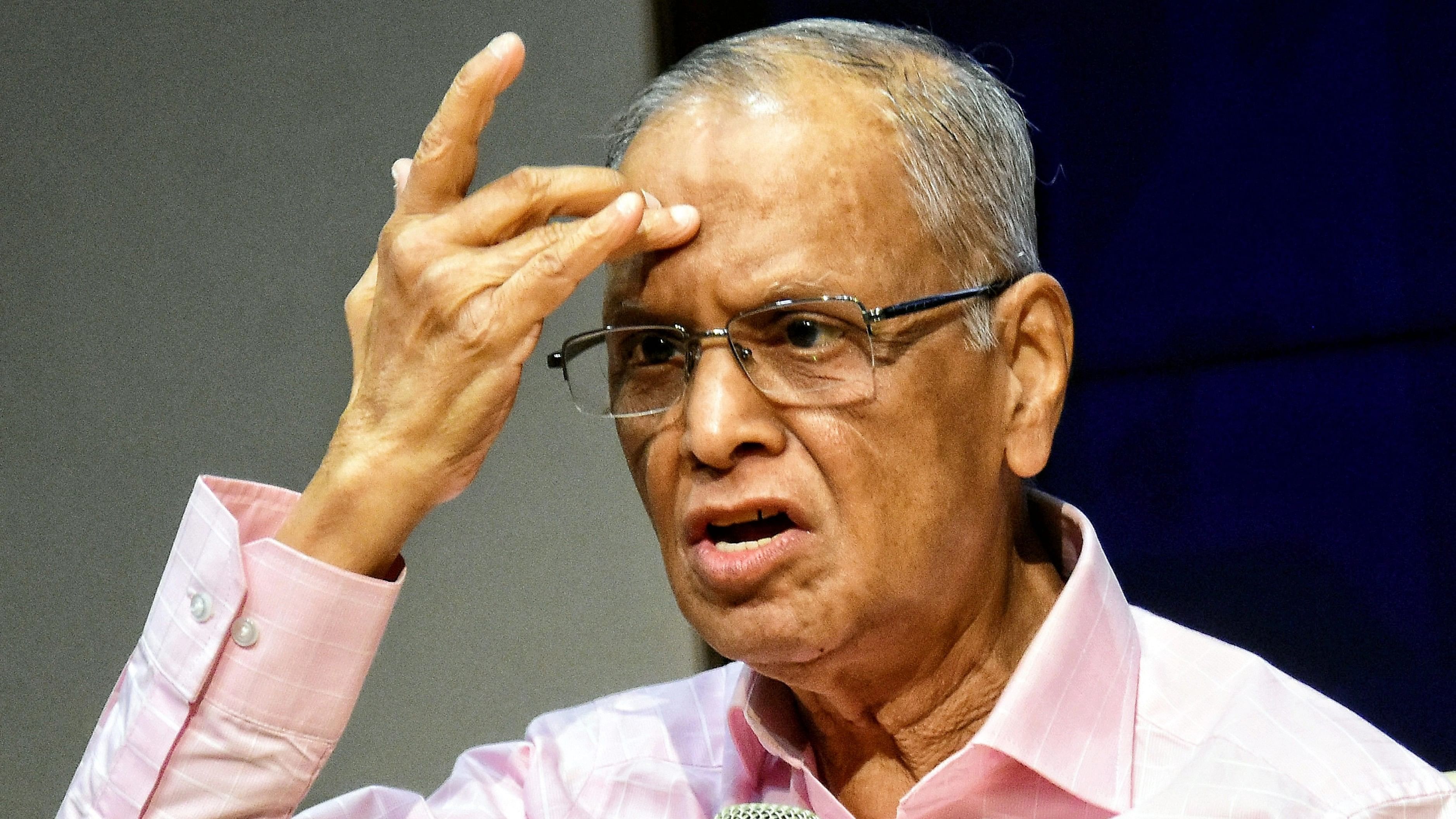
Infosys founder Narayana Murthy.
Credit: PTI Photo
Infosys founder N R Narayana Murthy has sparked a debate among youngsters as he batted for a 70-hour-work week to make the country compete on the global stage.
In his conversation with former Infosys CEO Mohandas Pai, Murthy said that until and unless the work productivity is increased and corruption in the government is reduced, India won’t be able to compete with other successful countries.
"India's work productivity is one of the lowest in the world. Unless we improve our work productivity, unless we reduce corruption in the government at some level, because we have been reading, I don't know the truth of it, unless we reduce the delays in our bureaucracy in taking this decision, we will not be able to compete with those countries that have made tremendous progress,” Murthy said in the first episode of 3one4 Capital's podcast The Record.
“Therefore, my request is that our youngsters must say 'this is my country. I'd like to work 70 hours a week'," Murthy added.
Defining youngsters as those who can “build our country”, he said that it was very important for them to transform as he gave the example of Germans and Japanese.
"This is exactly what the Germans and Japanese did after the Second World War... they made sure that every German worked extra hours for a certain number of years.”
Narayana Murthy also said that unless the citizens improve their productivity and work with a sense of discipline, there is nothing that the “poor” government can do. “Every government is as good as the culture of the people. And our culture has to change to that of highly determined, extremely disciplined and extremely hard-working people."
Here is what other entrepreneurs believe
Elon Musk during one of his interviews in 2022 said that he works 120 hours a week. As per a report in India Today, the Tesla CEO said that after acquiring X (then Twitter), his working hours went from 70-80 hours a week to around 120.
Bombay Shaving Company Founder Shantanu Deshpande last year had recommended 18-hour work days, especially for those who were in the early stages of their career. After receiving severe backlash on LinkedIn for his post, Deshpande wrote, "Yikes. So much hate for 18-hour days. It's a proxy for 'giving your all and then some'."
Bill Gates in his address to the graduates of Northern Arizona University said that he has learnt that there was more to life than work. He confessed that when he had just started, he did not believe that there was more to life than work. "Don't wait as long as I did to learn this lesson…Take time to nurture your relationships, to celebrate your successes, and to recover from your losses. Take a break when you need to. Take it easy on the people around you when they need it, too,” Gates said.
However, Warren Buffet believes that there is no need to wake up in the crack of dawn just to start your work. According to a report in CNBC, Buffet, who is one of the richest people in the world, says that he likes his sleep and usually sleeps eight hours a day.
What do the Indian labour laws say?
As per the labour law, it is not permissible to employ a worker for more than 48 hours in a week or nine hours a day. Total work-hour in a day needs to be not more than 10.5 hours and this includes a rest interval of half an hour after every five hours of work.
Nor do the labour laws permit overlapping shifts neither do they allow for a seven-day work week.
In case an employee works for over nine hours a day or 48 hours a week, they are entitled to an overtime pay. Despite the permission to work overtime, the law does not permit a work week of over 60 hours including the extra time.